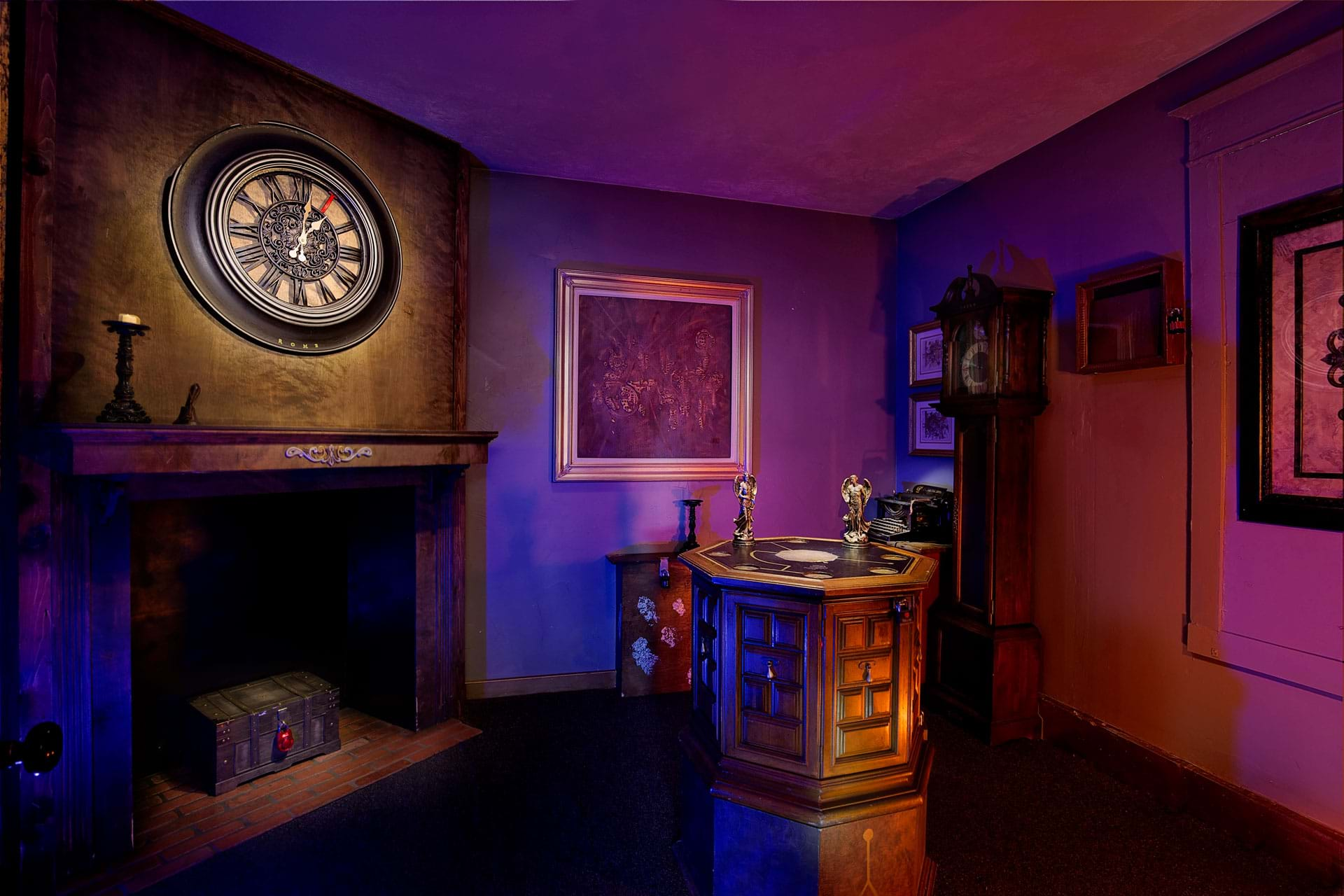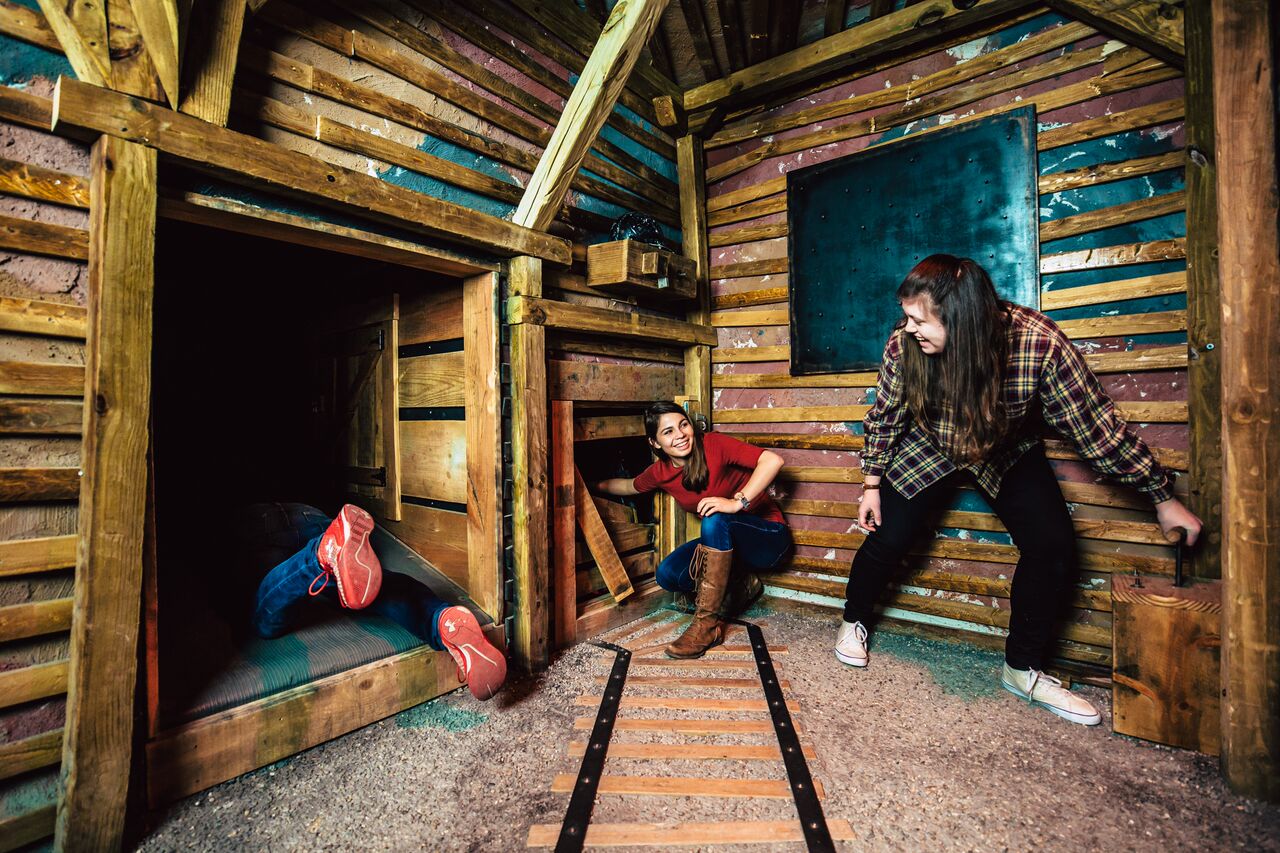Discover the Best Escape Room in Minneapolis-- Interactive and Involving Enjoyable
Discover the Best Escape Room in Minneapolis-- Interactive and Involving Enjoyable
Blog Article
Team Methods: Just How to Collaborate Efficiently in a Retreat Room
Teams need to proactively listen to each participant's understandings, appoint duties that straighten with individual toughness, and preserve normal check-ins to make sure focus and stop redundancy. By fostering an atmosphere that values communication and flexibility, groups can considerably heighten their performance and success prices.
Establish Clear Communication

To assist in clear interaction, it is crucial to mark a central point of call for information circulation. This duty entails summarizing findings and recommended methods to guarantee every person stays on the exact same page. In addition, taking on an organized strategy to conversations can avoid disorderly exchanges. For example, quick, concentrated updates from each group member can keep the group notified without overwhelming them with information.

Designate Functions Tactically
While clear communication establishes the structure for effective team effort, assigning roles tactically ensures that each employee's staminas are used efficiently. In an escape room situation, the time-sensitive and complex nature of obstacles demands a well-organized strategy to job delegation. By recognizing and leveraging specific expertises, teams can optimize their problem-solving abilities and boost overall performance.
Someone with an eager eye for information may excel in locating hidden things, while a logical thinker can be much better suited to fixing puzzles. This duty usually requires solid business and interpersonal skills.
2nd, guarantee that roles are versatile and adaptable. As new challenges emerge, the team should have the ability to pivot, reallocating tasks as required. This adaptability aids keep energy and prevents traffic jams that might occur because of inflexible duty tasks.
Ultimately, a critical technique to role task not only makes the most of the staminas of each staff member but likewise cultivates a cohesive setting, driving the team towards a successful escape.
Use Diverse Abilities
Recognizing and harnessing the varied skills within your team can considerably boost your efficiency in a retreat area. Each employee brings one-of-a-kind staminas to the table, and successfully leveraging these capacities can expedite analytical and enhance overall efficiency. As an example, a team member with solid logical abilities might stand out at decoding complex codes or patterns, while one more with keen observational capacities might swiftly find surprise clues that others could forget.
Reliable interaction is essential to utilizing these varied skills. Urge team participants to voice their understandings and concepts immediately, making sure that all prospective remedies are considered. This comprehensive technique cultivates a dynamic setting where creative thinking and crucial thinking can prosper. In addition, assigning jobs that line up with each member's toughness can avoid traffic jams and ensure that development from this source is continuous.
In addition, diversity in abilities frequently converts to diversity in believing designs, which is indispensable in a getaway space setup. While some difficulties might call for sensible reasoning and precision, others may take advantage of imaginative and association of ideas. By identifying and leveraging this diversity, teams can attend to a wider range of obstacles better, consequently raising their chances of an effective getaway.
Manage Time Properly

Determine visible problems and divide tasks based on team participants' strengths, making sure that no one is still. This method can assist maintain the team focused and prevent time from slipping away undetected.
Additionally, stay clear of one-track mind. If a puzzle is taking as well long, revolve staff member or go on to one more obstacle, returning later on with fresh viewpoints. Communication is critical-- keep everyone upgraded on addressed challenges and continuing to be tasks to avoid repetitive efforts.
Lastly, use any kind of tips or hints moderately however tactically - best escape room. Knowing when to request aid can conserve useful time. By adhering to these time monitoring principles, groups can dramatically enhance their chances of an effective and delightful escape room experience
Debrief and Show
Reflection is a necessary element of team advancement and improvement in the context of retreat spaces. Once the difficulty is completed, whether efficiently or not, it is important for the group to take part in a structured debriefing session. This procedure allows staff member to examine their efficiency, identify strengths, and identify locations for enhancement.
Begin the debrief click over here by discussing what worked out. Highlight certain instances of effective communication, analytical, and partnership. Acknowledging these favorable actions reinforces them and motivates their repetition in future difficulties.
Following, deal with the obstacles ran into. Discuss moments of complication, miscommunication, or inadequate strategies. Motivate an open and constructive discussion where team members can share their point of views without worry of criticism. This cultivates a culture of continuous renovation and knowing.
Final Thought
To conclude, effective cooperation in a getaway space is asserted upon clear communication, strategic duty tasks, the reliable usage of varied abilities, and skilled time monitoring. Normal check-ins and organized debriefings great site are important for maintaining emphasis and promoting continuous improvement. By producing a natural and adaptive team setting, the probability of successfully fixing problems and attaining the goal of escaping the area is dramatically improved. This method not only makes sure success but also promotes cumulative growth and understanding.
Report this page